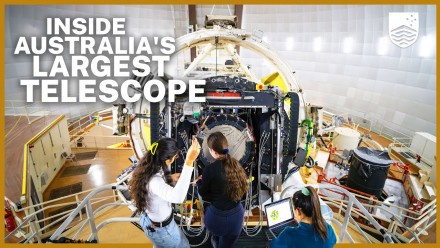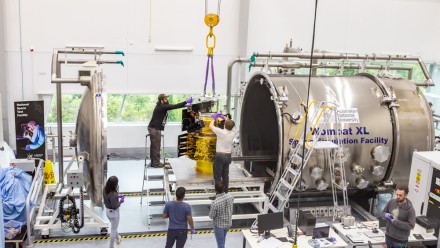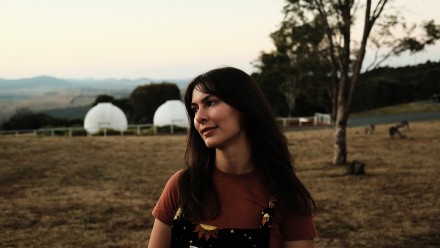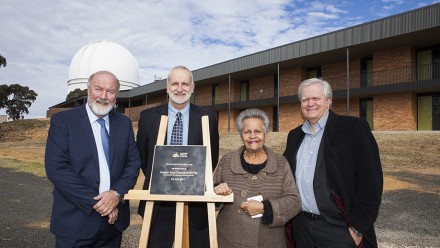ANU opens lodge at Siding Spring Observatory
ANU has officially opened the Siding Spring Observatory lodge that was rebuilt after the 2013 bushfires.
The old lodge, a temporary home to visiting astronomers, was destroyed by a huge bushfire and firestorm in January 2013, along with two other buildings, the Director's Cottage and the Fire Station.
Siding Spring is an important site for global astronomy, astrophysics and space science in Australia and is home to the ANU SkyMapper telescope, which is mapping the entire southern sky.
ANU Vice-Chancellor and Nobel-winning astrophysicist Professor Brian Schmidt AC said the new buildings signify the University's ongoing commitment to discovering what lies beyond our own world.
"Fire can destroy buildings but the discoveries made by the great academics at ANU, who work with telescopes at Siding Spring Observatory, can never be deleted from the global understanding of astronomy, astrophysics and space science," Professor Schmidt said.
"The buildings signify our belief that this knowledge has life-changing, real world application, as well as the potential to inspire people around the world to support and work in science."
The newly-constructed lodge is at the largest optical observatory in Australia and it serves as on-site accommodation for visiting researchers and astronomers. Siding Spring Observatory is an ANU site and home to more than 50 telescopes.
The new Lodge offers 18 private ensuite double rooms, combined with a library, lounge and seminar room, offering spectacular views over the Warrumbungle National Park.
ANU owns several active telescopes and the site is home to the Anglo Australian Telescope (AAT), many international research telescopes and commercially operated telescopes and is known as Australia's foremost optical and infrared observatory.
Professor Matthew Colless, Director of the ANU Research School of Astronomy and Astrophysics said the new lodge would ensure that Siding Spring Observatory is one of the best places in the world for scientists to visit and do astronomy.
"Astronomers work unsociable hours in remote locations and the new lodge will ensure that they have the best possible facilities to enable them to focus on the science," Professor Colless said.












